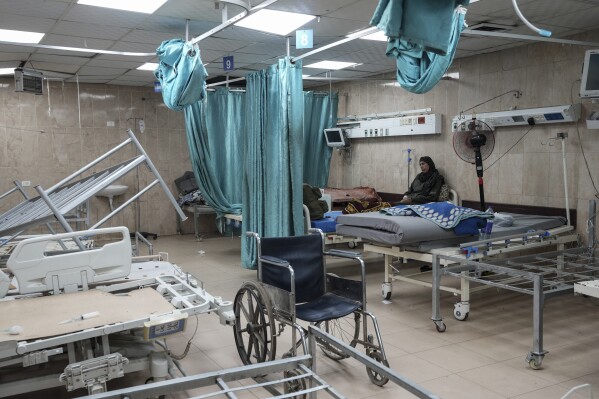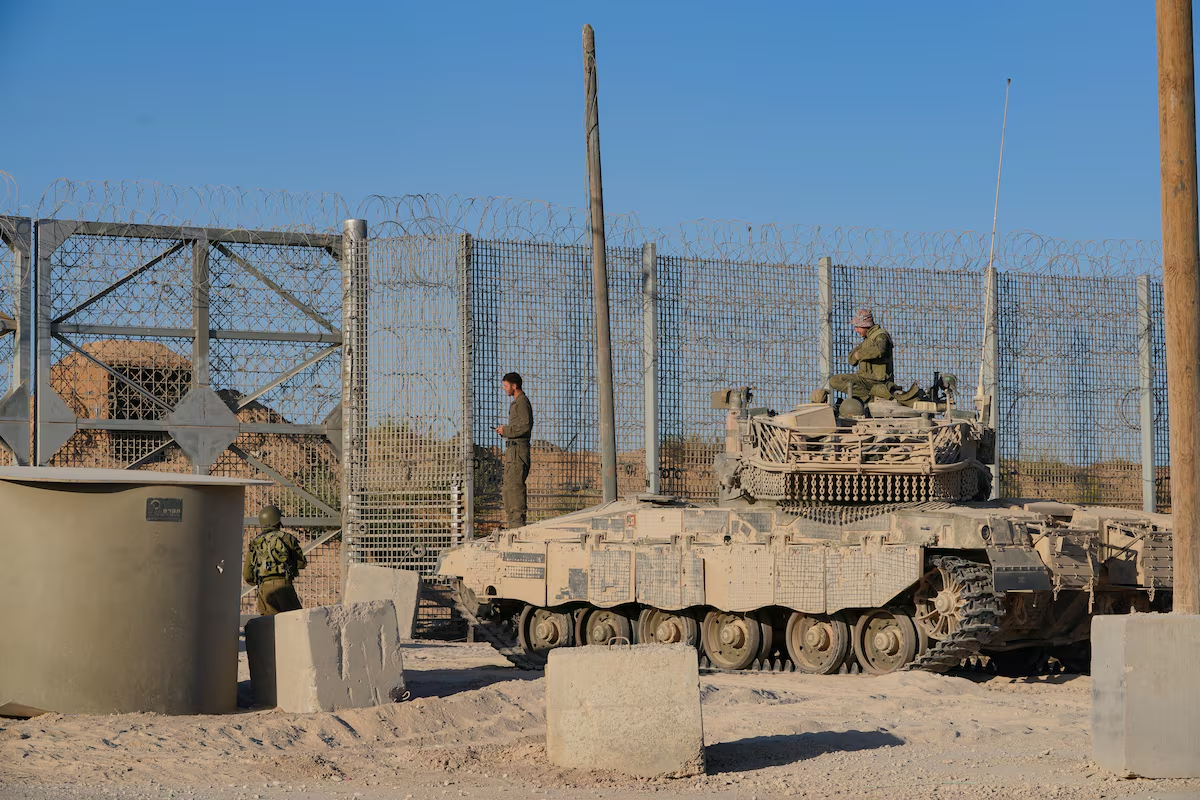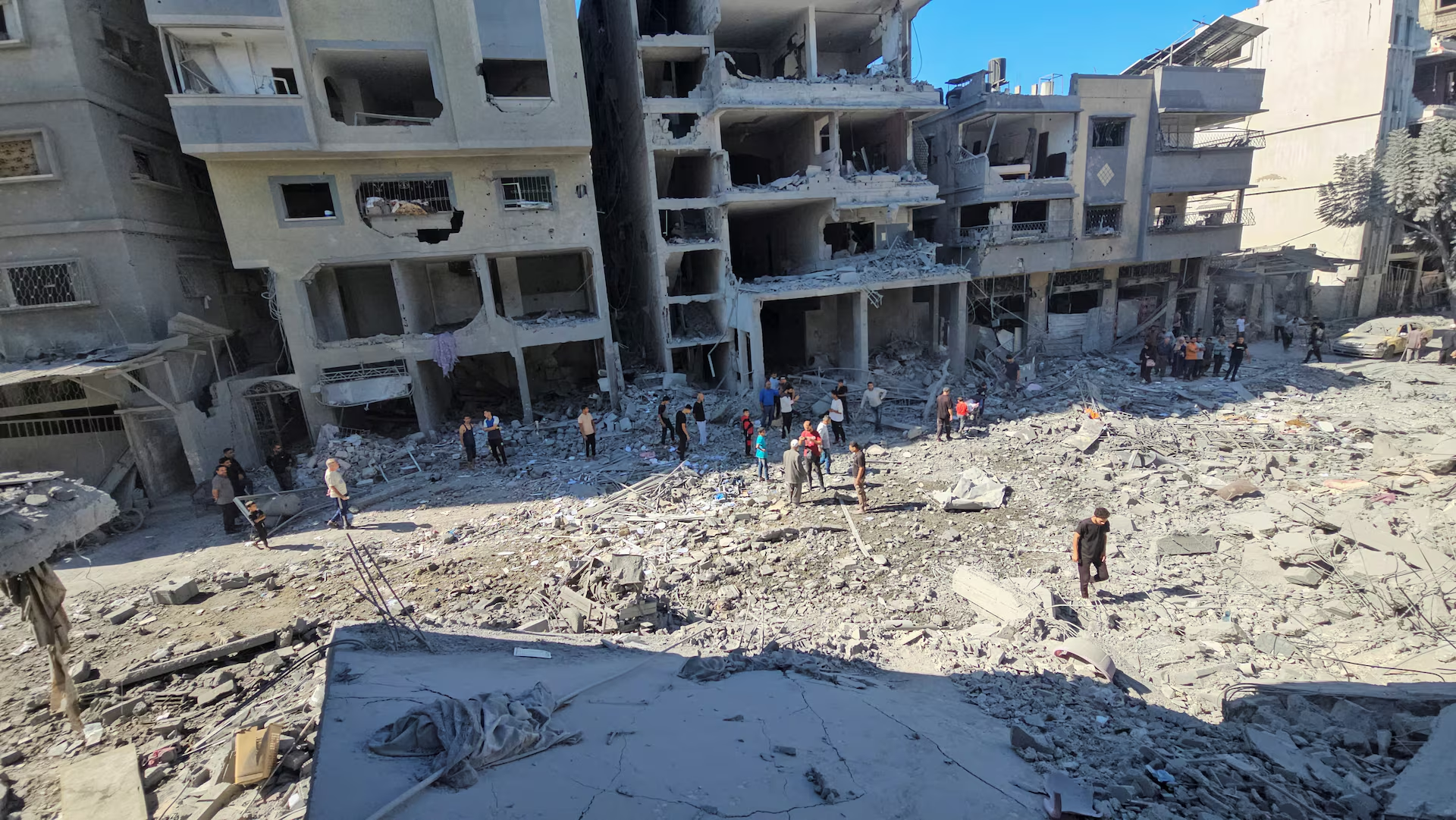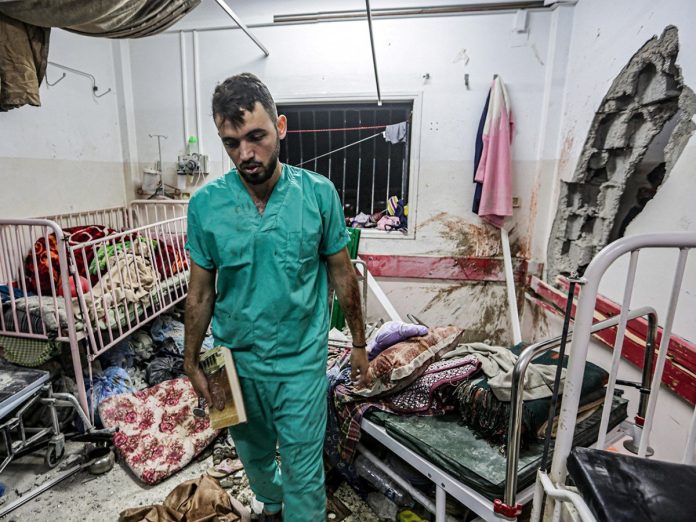Israeli forces escalated their military operations in northern Gaza on Monday, besieging hospitals and shelters for displaced people as part of their ongoing campaign against Palestinian militants, according to residents and medics. Witnesses reported that Israeli troops surrounded the historic Jabalia refugee camp, ordering women to leave and detaining men. In one airstrike on a house in the camp, at least five people were killed and several others wounded, medics confirmed.
The United Nations Relief and Works Agency (UNRWA) accused Israel of preventing humanitarian aid from reaching the northern parts of Gaza, where essential supplies, including food and medicine, are critically needed. Philippe Lazzarini, head of UNRWA, stated on social media platform X that people trying to flee the area were being killed, with their bodies left on the streets. He expressed deep concern over the deteriorating humanitarian situation.

At the Indonesian Hospital in northern Gaza, medics said Israeli forces had stormed a nearby school, detaining men before setting the building on fire. The flames reportedly spread to the hospital’s generators, causing a power outage. Health officials at the hospital and the nearby Kamal Adwan hospital said they had refused orders from the Israeli military to evacuate, citing the need to care for their patients. Although Israeli troops surrounded the hospitals, they had not entered the buildings, according to health workers on the ground.
Medical staff in the area reported that at least 18 people were killed in Jabalia on Monday, with an additional eight casualties reported elsewhere in Gaza due to Israeli airstrikes. The Israeli military confirmed its ongoing operations in Jabalia, stating that its forces were targeting “terrorists and terrorist infrastructure” in the area. They also claimed to have facilitated the evacuation of thousands of civilians through designated routes while maintaining communication with Gaza’s healthcare system to ensure emergency services continued.

Israeli forces have intensified their operations in both Gaza and Lebanon in recent weeks, following the assassination of Hamas leader Yahya Sinwar. While Israeli officials believe his death could pave the way for potential ceasefire talks, their military campaign has resulted in widespread destruction across Gaza and tens of thousands of Palestinian casualties. More than 1.9 million people are now displaced within Gaza, struggling to survive without basic necessities like food and clean water.
Jabalia residents described their situation as dire, with one man, Raed, saying, “We are facing death by bombs, by thirst and hunger.” He added that the camp is being destroyed, with the world seemingly turning a blind eye to the unfolding crisis. The overcrowding in UNRWA shelters has reached extreme levels, with some people forced to live in toilets, according to Lazzarini.
The health crisis is also growing more severe. Hadeel Obeid, a nurse at the Indonesian Hospital, said that medical supplies were running out, and the hospital had not received water or food for four consecutive days. The UN reported that it had been unable to deliver aid to the three hospitals in northern Gaza, exacerbating the crisis for patients and medical staff alike. Israeli forces have continued to restrict access to the area, complicating efforts to provide humanitarian assistance.
While Israel claims to have delivered significant amounts of aid into Gaza, Palestinians say little, if any, assistance has reached the northern areas where fighting is most intense. Israeli forces have tightened their siege of Jabalia, positioning tanks in nearby towns like Beit Hanoun and Beit Lahiya, according to residents. Israeli officials argue that their evacuation orders are intended to separate civilians from Hamas militants and deny any systematic effort to clear the area of its population.

Hamas has condemned Israel’s actions, accusing it of committing “genocide and ethnic cleansing” in northern Gaza. The group’s military wing claimed responsibility for attacks on Israeli forces, using anti-tank rockets, mortars, and improvised explosive devices to resist the incursion. Despite these efforts, Israeli airstrikes continued across the enclave, with five more deaths reported in Rafah and another four in Gaza City, according to local medics.
The death of Sinwar, one of the masterminds behind a 2003 cross-border attack that killed around 1,200 Israelis, has not brought an end to the violence. Israeli military actions, combined with internal Hamas resistance, have pushed Gaza further into chaos. Since the conflict began, Gaza health authorities report more than 42,500 Palestinian deaths, with an estimated 10,000 more unaccounted for, believed to be buried under the rubble of destroyed buildings. The human toll continues to rise, as the region faces a deepening humanitarian catastrophe.




